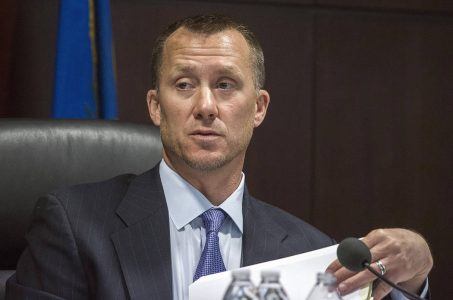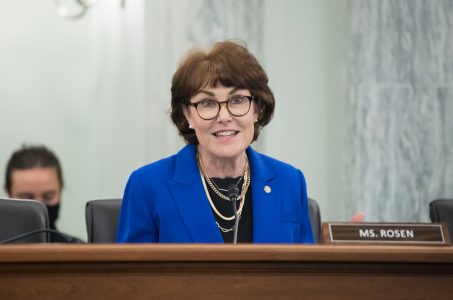Las Vegas Sands Spends Millions To Push For Texas Casinos Despite the Odds
Posted on: April 16, 2021, 02:42h.
Last updated on: June 3, 2021, 03:08h.
A reported multimillion dollar pro-casino ad campaign by the Las Vegas Sands Corp. (LVS) is unlikely to beat out long-held opposition from influential Texas politicians, policy analysts say.

The ad blitz supports proposed destination casino-resorts in Austin, Dallas-Fort Worth, Houston, and San Antonio. It also backs required legislation that would lead to a statewide vote to pave the way for the gaming properties.
Among the gaming-expansion bills now under consideration in Texas is House Joint Resolution 133. It was proposed by state Rep. John Kuempel, R-Seguin. Current legislation would also permit sports gambling in the state. But key Republicans oppose the gambling move.
Is there a one-in-1,000 chance the Las Vegas Sands gambit could be successful? Perhaps,” Mark P. Jones, a political science fellow at Rice University’s Baker Institute, told Casino.org.
“But the far more likely scenario is … Las Vegas Sands … will have spent millions of dollars with nothing tangible to show for it,” Jones said.
Texas Lt. Gov. Dan Patrick Always Wins
A large reason for the expected result rests on who has political power in Texas, he explains.
“At LVS casinos, it is true that in the end, the house always wins,” Jones said. “In the Texas Senate, however, when it comes to determining which legislation does not make it to the floor, Lt. Gov. Dan Patrick, R, always wins.”
Patrick currently is opposed to casino gambling legislation. Until he and other influential Republicans who oppose gambling change their minds, “spending millions on lobbying and TV ads is only going to serve to enrich the LVS’s lobbyists and political consultants, nothing more, nothing less,” Jones said.
As of earlier this year, LVS hired 51 lobbyists in Texas. They are working on promoting pro-casino legislation.
But Jones argues that running TV commercials a year and a half prior to the state’s next general election “is unlikely to cause those influential Republicans to either change their long-held beliefs or violate their principles,” Jones said.
He predicts that commercial gambling in the state would only “generate a modest amount of additional tax revenue.” Currently, the state’s “coffers are relatively flush as a result of better-than-expected economic performance and an avalanche of federal dollars resulting from the federal government’s COVID-19 response,” Jones said.
Beyond that, it is “not entirely clear that a money-focused commercial by an out-of-state company is going to generate a public outcry among Texans for their elected officials to pass legislation to allow the construction of a small number of destination casinos that would primarily serve to enrich a handful of Nevada and Texas billionaires,” Jones said.
Still, University of Houston political scientist Brandon Rottinghaus suggests, “The ads might raise awareness.”
Already, 41 percent of Texans said they would permit “full” casino gambling in Texas, according to a recent University of Texas/Texas Tribune survey. Only 8 percent of those surveyed want to totally ban gambling in the state.
But, as far as legislation, Rottinghaus confirms, “It’s hard to move the needle this late in the legislative session and on such a controversial topic that would require significant change.”
Las Vegas Sands Betting on Future
The marketing effort suggests LVS may be focusing on getting legislation approved in future years.
“The Sands is playing the long game,” Rottinghaus told Casino.org. “Changing the politics on this is going to require a few years. Starting now means the ground might be softer in the future.”
Also, Clyde W. Barrow, chair of the Department of Political Science at the University of Texas Rio Grande Valley, highlighted a few arguments in favor of expanded gambling.
For instance, he estimates $5 billion is spent annually by Texans at casinos in nearby states, including Nevada. Bringing that money home will generate jobs mostly for people without a college education, Barrow said. It will also generate tax revenues for state, county, and local governments, he adds.
If Sands is in Texas for the long game, then it is necessary to start mobilizing public opinion, which is overwhelmingly in favor of casino gambling,” Barrow told Casino.org. “The advertising will not change the minds of Gov. Abbott, Lt. Gov. Dan Patrick, or Attorney General Ken Paxton, but over time — many years — it can start to mobilize public opinion and put pressure on rank-and-file legislators.”
The TV and radio ads were expected to begin airing late this week, according to The Texas Tribune.
Texas Destination Resort Alliance Premiers
LVS is paying for the ads “under the banner of” Texas Destination Resort Alliance, an online effort to promote casinos in the state,” the Texas Tribune said.
The large number of Texans who head out of state to gamble and the public support for expanded gambling are seen as among the reasons why LVS is focusing on Texas.
Related News Articles
Burnett Stepping Down as Chairman of Nevada Gaming Control Board
Minnesota Sports Betting Bill Scores First Victory
Most Popular
VEGAS MYTHS RE-BUSTED: The Strip is the Brightest Place on Earth
UPDATE: Former Resorts World & MGM Grand Prez Loses Gaming License
Jackpot News Roundup: Two Major Holiday Wins at California’s Sky River Casino
VEGAS MYTHS RE-BUSTED: The Traveling Welcome to Las Vegas Sign
Caesars Virginia in Danville Churns Out Long Lines, Lofty Excitement
Most Commented
-
UPDATE: Whiskey Pete’s Casino Near Las Vegas Closes
— December 20, 2024 — 33 Comments -
Zillow: Town Outside Las Vegas Named the Most Popular Retirement City in 2024
— December 26, 2024 — 30 Comments -
Caesars Virginia in Danville Now Accepting Hotel Room Reservations
— November 27, 2024 — 9 Comments -
UPDATE: Former Resorts World & MGM Grand Prez Loses Gaming License
— December 19, 2024 — 8 Comments -
Oakland A’s Prez Resigns, Raising Questions About Las Vegas Move
— December 27, 2024 — 7 Comments
















Last Comments ( 4 )
No way! Why the heck should we allow only 4, owned by corporations out of state? That's a ludacris idea. I believe it should be legal but entrepreneurs should be on a level playing field or at the very least allowed on the field. They want to legalize it for just those four casinos? Heck no, Eff the jobs, eff the tax, thats only half of it. Why would we send all the profit straight out of TX to moguls in other states? And why can they not be "locally" owned casinos? I do also find it very hypocritical that Texas sells lottery tickets and doesn't allow gambling. Lotto is targeted to those who can least afford it. At least at a casino they have a decent chance to win.
I have played slots at WINSTAR & CHOCTAW casinos in Oklahoma. More than 85% of car license tags are based in Texas. These casinos are sucking dollars that belong to Texas. Our politicians don't understand the needs of seniors for entertainment and ease of travel. If a plebiscite would ask voters if they are For or Against casino gambling, a landslide FOR is expected. I will mobilize my family, friends and associate to unseat those against casino gambling. Your days are numbered.
Casinos should operate in Texas. I am a senior who commute to Oklahoma once a month and play the slots. Driving is becoming a hassle and i wish a casino would be here in Dallas as soon as possible. These politicians who oppose this move should be unseated and a plebiscite should decide this issue.
Absolutely not. We do not need these casino people coming in and cheapening OUR GREAT STATE! We're already being ruined by Californians. We native Texans love Texas the way it is. Californians need to go home and stop trying to change and destroy every place that they invade. And what happens in Nevada should stay in Nevada. Keep the crazy and stupid ideas in Nevada and California. We have substance here in Texas.